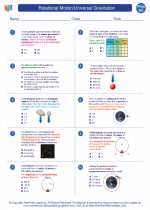Immune System
The immune system is a complex network of cells, tissues, and organs that work together to defend the body against harmful microorganisms, such as bacteria, viruses, and fungi. It also helps to protect the body from harmful substances and abnormal cells, including cancer cells.
Components of the Immune System
The immune system is comprised of several key components:
- White Blood Cells (Leukocytes): These are the primary cells of the immune system and include different types such as lymphocytes, neutrophils, monocytes, eosinophils, and basophils.
- Lymphoid Organs: These include the thymus, spleen, lymph nodes, and bone marrow, where immune cells are produced, mature, and stored.
- Antibodies: These are proteins produced by the immune system to identify and neutralize foreign substances.
- Complement System: A group of proteins that work together to destroy bacteria and viruses.
- Immune Response: The coordinated response of the immune system to eliminate pathogens and foreign substances from the body.
Types of Immunity
There are two main types of immunity:
- Innate Immunity: This is the body's first line of defense and includes physical barriers (skin, mucous membranes) as well as non-specific immune responses such as inflammation and fever.
- Adaptive Immunity: This type of immunity is specific to particular pathogens and involves the production of antibodies and memory cells that provide long-term protection.
Immune Disorders
Disorders of the immune system can lead to autoimmune diseases, where the immune system mistakenly attacks the body's own cells, as well as immunodeficiency diseases, where the immune system is weakened and unable to effectively fight off infections.
Study Guide
To study the immune system effectively, you should focus on the following key areas:
- Understanding the different types of immune cells and their functions.
- Exploring the process of immune response to pathogens and foreign substances.
- Learning about the mechanisms of innate and adaptive immunity.
- Identifying the role of antibodies and the complement system in immune defense.
- Investigating common immune disorders and their impact on health.
Remember to use visual aids such as diagrams and charts to help you understand the complex interactions within the immune system.
[Immune] Related Worksheets and Study Guides:
.◂Physics Worksheets and Study Guides High School. Rotational Motion/Universal Gravitation

 Worksheet/Answer key
Worksheet/Answer key
 Worksheet/Answer key
Worksheet/Answer key
